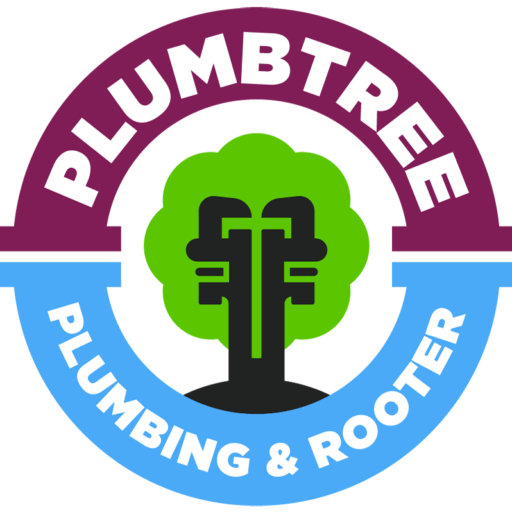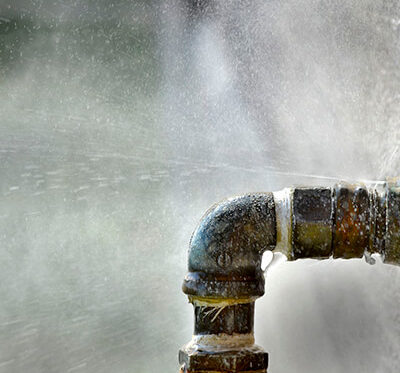Leaky pipes can wreak havoc on your home. They can cause a multitude of problems, one of the biggest problems being mold. They commonly go unnoticed, and the longer the pipe leaks, the more damage it will cause. This can be an issue because mold is very persistent and grows quickly. Once mold starts to grow, it has to be treated by a professional to prevent it from spreading. You should contact a professional as soon as you suspect a leak. They can evaluate the situation and tell you how to handle it.
Spotting a leaky or burst pipe can be tricky. You’ll likely smell a musty odor before you find the cause. Some of the more common areas to find a leak are in the bathroom, kitchen, laundry room, and basement.
1. Listen for Dripping Water
If your water isn’t running, you shouldn’t hear any water. If you’re hearing dripping, splashing, or hissing sounds from inside your walls, you probably have a leak.
These noises are different than the drips you hear after taking a shower. Sometimes, the water continues to drip after you shut off the water to your shower. This is also common after using a faucet. This indicates a potentially slow drain, causing the water to drip instead of flow. If the drip does not happen after water fixture use, or the water continues to drip for a long period of time, a leak is most likely the cause.
2. Look for Discoloration
Mold may be one of the first things you spot while checking exterior areas. Mold can look like brown or black specks. Look for discoloration on your walls, floor, or ceiling. Look for areas that have a darker or lighter color than usual. A darker color on your ceiling indicates a leak from the top floor, a lighter color on your walls or floor means the leak could be coming from a pipe that is installed in the wall. You should also look for peeling paint, as this is an indicator of water damaging your drywall.
3. Observe Your Water Pressure
A leaky pipe will cause water pressure changes. If your pipe is leaking an excessive amount of water, this can cause low water pressure in all areas of the home. Even if you have a slow leak, it can still affect one or more water fixtures in the home. Low water pressure can also cause clogs in your toilet or sinks. The water is no longer forceful enough to push things down the pipes.
4. Look for Damp Areas
If you notice dark patches on your walls, you may have a leak around that area. A leaky pipe can slowly drip water onto the walls and cause the environment to become damp. This is the perfect spot for mold to thrive and potential damage to occur.
For example, if you notice a damp patch on the floor, expect the leaking pipe to be near that area. If left untreated, the floorboards may sink due to the pressure. If there is a leaky pipe above the ceiling, the ceiling may become damp and collapse.
5. Be Aware of Any Unusual Odors
If you have low water pressure due to a leak, the water may not be forceful enough to push sewage down the pipe and into the main line. This can cause a sulfur-like smell. Pooling water can also cause an unpleasant smell.
One of the biggest signs is a musty and moldy smell that you can’t eliminate. As the water settles into the wall, floor, or ceiling, it dries and creates this particular odor. Mold thrives in moist environments and your damp walls, ceiling, or floor are the perfect spots for it to grow.
6. Pay Attention to Your Water Bill
If your water bill increases, yet your water habits haven’t changed, you may have a leak. Collect your invoices from the last several months and compare them. Has your water usage steadily increased? If so, you may have a leak. Your rates should stay within the same range each month.
Some pipes may be underground and it will be difficult to detect leaks in this area. It is best to call a professional to do a thorough inspection if you suspect a leak in this part of your system.
Is Mold Dangerous?
Mold can cause a variety of health problems, especially to those who are immunocompromised, those who have an allergy, and those with a respiratory illness. As mold grows, the spores and small fragments enter the air. These spores can cause allergens and mycotoxins. These can be extremely harmful to those who are already sensitive to them.
When a leaky pipe causes dampness in an area of the home, this encourages the material to break down. Drywall, carpet, floorboards, and ceiling tiles are perfect examples of this. Serious damage can occur if mold is allowed to settle. Once the matter collapses, it releases dust into the air that contains toxic particles. These particles can be harmful to those who have asthma or respiratory problems. This is why it is so difficult to address mold on your own, and even more reason to contact a professional to tackle the issue entirely, as there may be underlying issues or further protocol to take.
Mold can affect even the healthiest of individuals too. Here are a few health issues that mold can cause:
- Fungal Infections
- Bronchitis
- Skin and Eye Irritation
- Fever
- Nausea
- Insomnia
- Wheezing
- Headache
Controlling moisture and fixing your leaky pipes can prevent mold from growing and spreading in your home. If you suspect a leak, it is important to act quickly and call a professional to assess the situation. They will fix the problem and give you tips on how to prevent the situation from happening again in the future.
Call in the Professionals
Plumbtree Plumbing & Rooter is a family-owned and locally operated company. We are proud to serve San Jose and the Greater Silicon Valley area, with customer satisfaction and comfort as our number one priority. We have the skills and experience needed to handle your plumbing problems. Our team of professionals are ready to serve you 24 hours a day, 365 days a year.
We provide a wide range of plumbing services including drain cleaning, sump pumps, sewer services, water heater services, water lines and filtration, water softener systems, tankless water heaters, toilet repair & installation, shower repair & installation, faucet repair & installation, water leak detection & repair, and much more.
Our other services include plumbing fixtures, gas services, and emergency service! This emergency service includes service of burst pipes, broken water heaters, overflowing toilets, clogged drains, and gas lines repairs. You can visit our website for more information on current specials, coupons, and financing. While you’re there, take a look at our testimonials and our “About Us” page to learn more about our team! You can also use our website to request service or to submit a contact form for your convenience. Call Plumbtree Plumbing & Rooter and schedule an appointment today!

